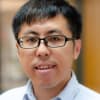commentary Commentary
Commentary: Misinformation threatens Singapore’s COVID-19 vaccination programme
Singapore's vaccination programme should keep an eye on vaccine hesitancy and misinformation, say NTU’s Edson C Tandoc Jr, Kim Hye Kyung, Edmund WJ Lee and Zhang Hao Goh.
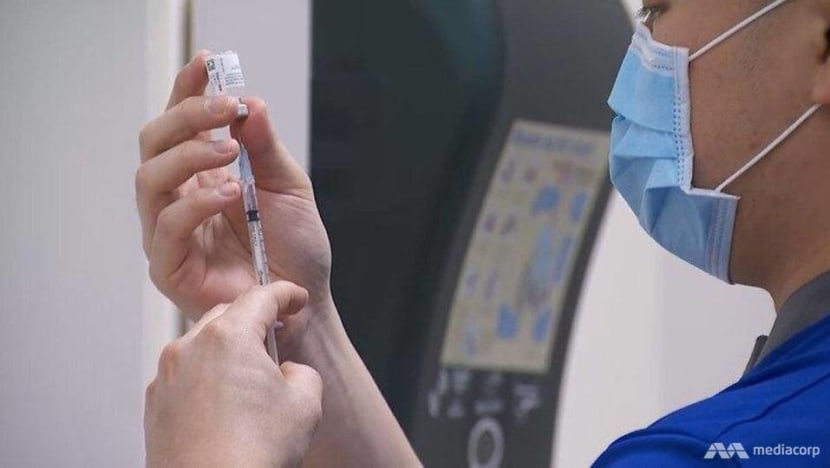
A healthcare worker at National Centre for Infectious Diseases prepares to administer one of the first doses of the COVID-19 vaccine in Singapore on Dec 30, 2020.
SINGAPORE: Singapore injected its first batch of healthcare workers with the COVID-19 vaccine as 2020 drew to a close.
This came only a little over two weeks after Prime Minister Lee Hsien Loong announced in a national broadcast on Dec 14 that Singapore would be receiving the vaccine developed by pharmaceutical company Pfizer and German firm BioNTech.
About 1,050 frontline healthcare officers from the Home Team will be vaccinated for COVID-19 over the coming weeks.
The elderly, aged 70 and above, will also be vaccinated next, from February, according to the Ministry of Health.
With an eye on more batches of COVID-19 vaccines arriving in the coming months, the Government has taken pains to lower barriers to getting vaccinated and soften the ground.
It has made the COVID-19 vaccine free and voluntary. It also targets to bring in enough to cover all Singaporeans and long-term residents by year’s end.
Vaccines achieve larger public policy goals in curbing disease progression and transmission only when a substantial proportion of the population has been vaccinated. Aside from logistics, public attitudes toward the vaccine may present a host of challenges.
READ: Commentary: This 71-year-old wants you to get a COVID-19 vaccine once you can. Here’s why
READ: Commentary: Here’s why taking the vaccine is necessary even if it’s optional
In an online survey involving 999 residents the NTU Wee Kim Wee School of Communication and Information (WKWSCI) commissioned days after PM Lee’s national speech, 55.3 per cent agreed or strongly agreed that they will get vaccinated as soon as the COVID-19 vaccine becomes available in Singapore.
About 33.7 per cent neither agreed nor disagreed, while 10.9 per cent disagreed or strongly disagreed that they would get themselves vaccinated.
VACCINE HESITANCY
Experts have long studied factors leading to vaccine hesitancy, when an individual decides to delay or reject vaccination despite availability.
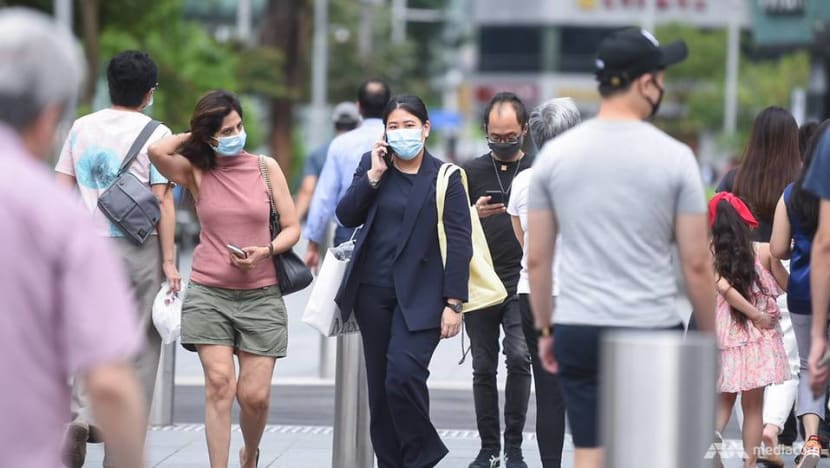
Some countries have grappled with this challenge for a while for a range of established vaccines, including those developed against measles and the human papillomavirus (HPV).
Global healthcare experts have raised alarm bells for how much vaccine hesitancy contributes to the resurgence of diseases to the point it threatens to reverse medical progress in eradicating or controlling certain diseases.
In 2019, the World Health Organization identified vaccine hesitancy as one of the top 10 global health threats.
This threat has been given fresh urgency as anti-vaxxers around world scuttled national healthcare efforts to keep their populations healthy. A wave of anti-vaccination sentiment that swept many countries, including the United States and the Philippines, contributed to a surge in measles cases around the world in 2018.
READ: Commentary: Transporting big COVID-19 vaccine batches isn’t working for far-flung parts of the US
To be certain, getting vaccinated is an outcome of a complex individual decision-making process. Those reluctant often lack confidence in the effectiveness and safety of the vaccine, do not see a need for or value of the vaccine, or have limited access to the vaccine.
This might stem from both not having enough information about the vaccine and from being exposed to wrong information.
VACCINE MISINFORMATION
Singapore would not be alone. Many countries are seeing a rise in misinformation about the COVID-19 vaccines, such as those claiming the COVID-19 vaccine causes infertility or alters a person’s DNA.
Some may have been created and shared without malicious intent, even stemming from a sincere intention to warn others. Others may have been intentionally created to shake public trust.
Regardless of the intention, combating misinformation against COVID-19 is crucial. Online falsehoods transgress geographical boundaries. What goes viral in one country can also spread in another, as what an ongoing study by NTU Associate Professor Edson Tandoc Jr has found.
READ: Commentary: Forwarding a WhatsApp message on COVID-19 news? How to make sure you don’t spread misinformation
Two emerging trends contribute to a potential spread of COVID-19 vaccine misinformation.
First, the rise of well-organised conspiracy groups, like QAnon in the US, a far-right conspiracy group that believes the world is run by Satan-worshipping paedophiles.
QAnon supporters were highly active in galvanising online support since early last year. They set up multiple Facebook groups and pages that spread falsehoods, including the idea that COVID-19 was a ploy to damage President Trump’s re-election chances, and that Asians were more susceptible to it than Caucasians.
Facebook has since banned all QAnon groups and pages since October 2020.
READ: Commentary: Facebook’s eleventh-hour suspension of Trump’s account raises questions about its motives
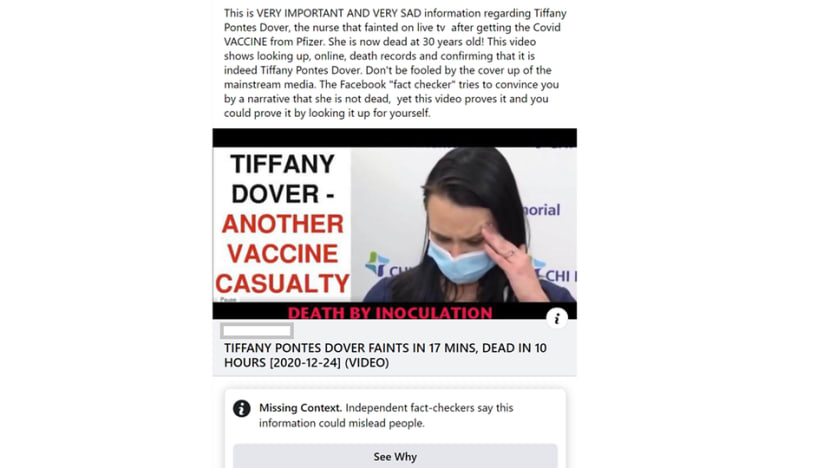
But an ongoing study by NTU Assistant Professor Edmund Lee, tracking COVID-19 public discourse on Facebook, finds remnant groups very much alive on Facebook’s public pages and groups, peddling different unverified claims against the COVID-19 vaccine, such as the falsehood that the COVID-19 vaccine will implant a microchip in our bodies.
Second, some celebrities and activists amplify unverified claims against the vaccine, such as Robert F Kennedy Jr — the nephew of late US president John F Kennedy — and Black Panther actor Letitia Wright (who plays the sister of Black Panther), who have come into the spotlight recently for casting doubt on the safety of the vaccines.
The adverse effects of vaccine misinformation are far-reaching in sowing distrust in science and public institutions.
READ: Commentary: Making sense of shifting goalposts in public policy and the science of COVID-19
READ: No corners cut in Singapore’s COVID-19 vaccine rollout: Expert panel doctor
A recent survey of 2,361 UK adults published in The Lancet Regional Health Europe found individuals having mid to high levels of mistrust of the benefits vaccination brings, as well as concerns about future side-effects, were less likely to vaccinate against COVID-19.
Battling the constant onslaught of COVID-19 vaccine misinformation also has the unintended consequence of diverting governments and public health agencies’ attention and resources in coordinating nationwide vaccination programs effectively.
Listen to the behind-the-scenes considerations and discussions going into what might be Singapore’s biggest vaccination programme ever on CNA's Heart of the Matter podcast:
WILLINGNESS TO VACINATE
To dispel distrust in the vaccine, more attention must be paid in public policy efforts to convince the public of the competence of the healthcare system as well as the scientific consensus on the safety and effectiveness of vaccines.
Poor or inadequate communication strategies have fuelled vaccine hesitancy and undermined vaccination uptake in the past. For example, in 1999, miscommunication on the reduction of thimerosal as a preservative in vaccines led to vaccine refusal in the US.
The Government’s key messages should be multi-pronged.
A study on HPV in Singapore by NTU Assistant Professor Kim Hye Kyung found a testimonial that described the negative consequences of not being vaccinated against HPV was more effective in increasing vaccination intention among Singaporean females than a message addressing positive vaccination outcomes.
This pattern was more pronounced among those with strong motivations to avoid negative outcomes, which is a common Asian cultural trait, or those who perceived themselves at high risk of infection.
READ: Commentary: Wear your mask properly! Uncovering the reasons behind public mask shaming
Indeed, our survey found those who think the threat of COVID-19 remains serious and that they were at risk of contracting COVID-19 were more willing to get the vaccine.
Thus, authorities should continue reminding the public that the threat of COVID-19 remains and that we cannot be complacent.
But highlighting the negative consequences of being unvaccinated should be accompanied by information on the vaccine’s effectiveness to overcome public’s anxiety and motivate more to take the shot.
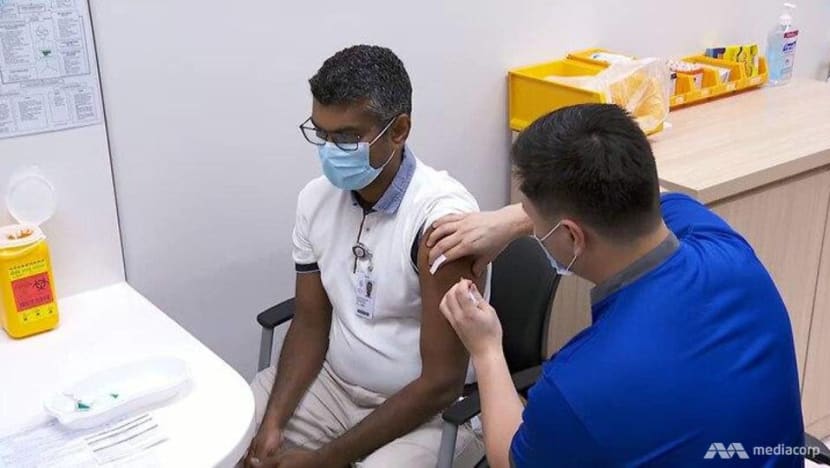
Indeed, in the survey we conducted, those who thought the COVID-19 vaccine would be effective in curbing community transmission were more likely to report willingness to get vaccinated.
Optimism and trust also drive willingness to get vaccinated: Those who foresee the COVID-19 situation will improve this year, and those who expressed high levels of trust in both the government and scientists, also reported higher levels of agreement that they would be willing to take the COVID-19 vaccine.
Government officials, scientists and healthcare professionals must come out to talk about the COVID-19 vaccine, as trusted voices are crucial in shaping positive public attitudes toward vaccination.
READ: Commentary: COVID-19 - when social media and chat groups complicate crisis communication
Reminding the public that getting vaccinated is both a personal and a familial responsibility should also be a key message. Concern for one’s personal safety as well as for the well-being of one’s family members were both positively related to willingness to get vaccinated, but personal safety had a stronger relationship.
As the threat of misinformation remains, we also urge authorities and experts to invest efforts to communicate via online spaces where online falsehoods spread, especially since the majority of people in Singapore now get their news from social media platforms, specifically from Facebook and WhatsApp.
They should also monitor public knowledge and perceptions as vaccination continues in Singapore and around the world, especially as conspiracy theories about the vaccine are on the rise.
BOOKMARK THIS: Our comprehensive coverage of the coronavirus outbreak and its developments
Download our app or subscribe to our Telegram channel for the latest updates on the coronavirus outbreak: https://cna.asia/telegram
Edson C Tandoc Jr is an Associate Professor at WKWSCI and the Director of the Centre for Information Integrity and the Internet (IN-cube).
Kim Hye Kyung is an Assistant Professor at WKWSCI, specialising in health communications, and a collaborator for IN-cube.
Edmund W J Lee is an Assistant Professor at WKWSCI, specialising in big data and public health communications, and a co-director of IN-cube.
Zhang Hao Goh is a Post-doctoral Research Fellow at IN-cube at WKWSCI specialising in human cognitive responses and their coping behaviours toward threats.












